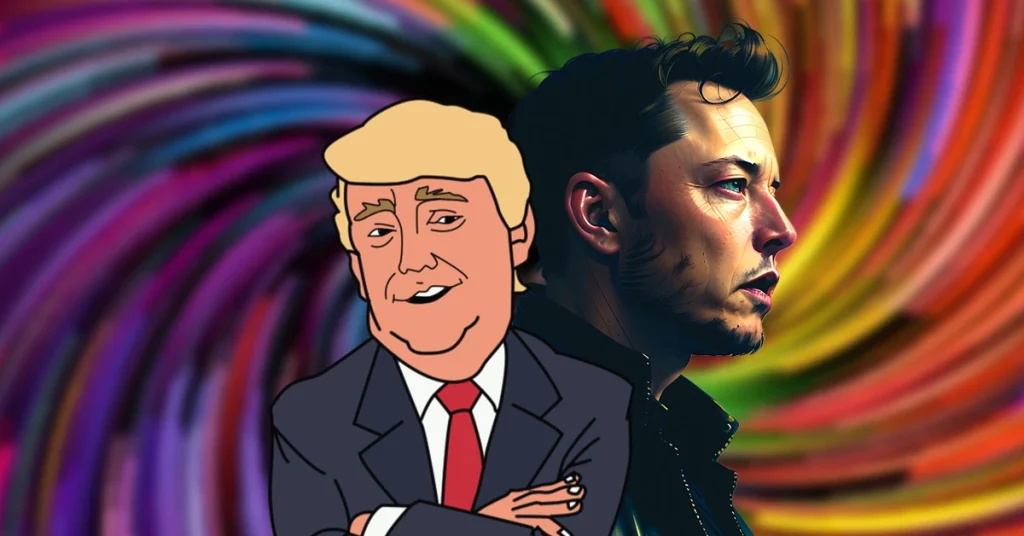Debate Over Trump's 'Big, Beautiful Bill' and its Economic Impact

President Donald Trump's ambitious legislative proposal, officially known as the "One Big Beautiful Bill Act" (OBBBA), or simply the "Big Beautiful Bill," has ignited widespread debate and controversy as it progresses through the U.S. Senate. The comprehensive spending measure, characterized by sweeping tax reforms and targeted economic incentives, narrowly advanced in the Senate with a 51-49 vote, bringing it closer to the President's desk despite warnings from credit agencies and significant criticism regarding its potential impact on the federal deficit.
Proponents of the OBBBA assert that it is a crucial intervention for the U.S. economy. The American Bankers Association (ABA) expressed strong support for the bill's provisions, citing "much needed tax relief." David Seif, Nomura's chief economist for developed markets, believes the OBBBA would be "unquestionably good" for the economy in the short term, primarily by renewing expiring tax provisions from Trump's 2017 Tax Cuts and Jobs Act, thereby preventing a sharp fiscal contraction in 2026. Citi strategists echoed this sentiment, predicting the bill would serve as an "economic tailwind" and improve growth sentiment, especially alongside anticipated monetary policy loosening by the Federal Reserve.
Further defending the bill, Stephen Miran, Chair of the Council of Economic Advisers, warned that its failure would trigger "the biggest tax hike in history," leading to a recession and causing 8 to 9 million Americans to lose health insurance. Miran argued that the OBBBA not only averts these dire outcomes but also significantly boosts economic growth, encourages labor market participation, and transitions individuals off Medicaid as they secure jobs with insurance. Supporters also claim the bill's Medicaid reforms are essential for long-term viability, focusing on eliminating waste, fraud, and abuse, including the participation of illegal immigrants in the program, which they contend is a fraudulent use of taxpayer dollars.
However, the bill faces substantial opposition due to serious drawbacks, primarily concerning its fiscal implications. The nonpartisan Congressional Budget Office (CBO) estimates that the Senate's version of the bill could add nearly $3.3 trillion to the federal deficit over the next decade. Morgan Stanley, while acknowledging potential benefits to businesses, individuals, and key equity sectors, raised concerns about the nation's fiscal sustainability. Erica York, Vice President of federal tax policy at the Tax Foundation's Center for Federal Tax Policy, labeled the bill "fiscally irresponsible," arguing that it significantly increases deficits and debt and that its tax cuts are often complicated and poorly designed, unfairly benefiting certain workers over others. She also highlighted the increased administrative burden on the Internal Revenue Service (IRS) due to the bill's narrowly tailored tax rules.
Tech billionaire Elon Musk has emerged as a prominent and vocal critic of the OBBBA, reigniting his strong objections after a brief detente with President Trump. Musk lambasted the bill as "insane spending" that "will destroy millions of jobs in America and cause immense strategic harm to our country." He asserted that it gives "handouts to industries of the past while severely damaging industries of the future" and criticized the projected $5 trillion increase in the debt ceiling. Musk has threatened to form a new political entity, the "America Party," the day after the bill passes, aiming to provide an alternative to what he terms the "Democrat-Republican uniparty" or "Porky Pig Party." He vowed to campaign against any politician who votes for the bill, especially those who campaigned on fiscal conservatism, expressing his intent to support figures like Rep. Thomas Massie, a fiscal conservative targeted by Trump for his opposition.
Musk's criticism marks a notable divergence from President Trump, whom Musk had significantly supported in the 2024 elections. Trump initially expressed disappointment but later adopted a more conciliatory tone, while also subtly criticizing Musk by noting the substantial government contracts and subsidies his companies receive (estimated at $38 billion) and linking Musk's opposition to his companies' reliance on green-energy tax credits, which the bill threatens to cut. Musk, however, maintains that his primary concern is preventing America from being "bankrupt," and he has also voiced strong concerns about the bill's potential to decimate the country's wind and solar industries by ending billions of dollars in green-energy tax credits.
The legislative process for the OBBBA has involved a marathon "vote-a-rama" in the Senate, where lawmakers propose numerous amendments. President Trump is pushing for the bill's passage by July 4, after which it would proceed to the House for approval. The controversy surrounding the bill highlights deep divisions, with even some Republican allies like Sen. Thom Tillis, who recently announced his retirement, publicly backing Musk's warnings against the bill's fiscal implications. Sen. Elissa Slotkin, a Michigan Democrat, has also engaged in discussions regarding the bill, underscoring its broad political impact.










